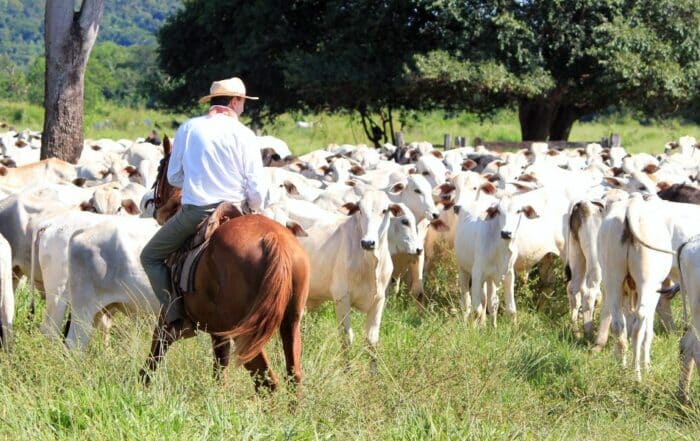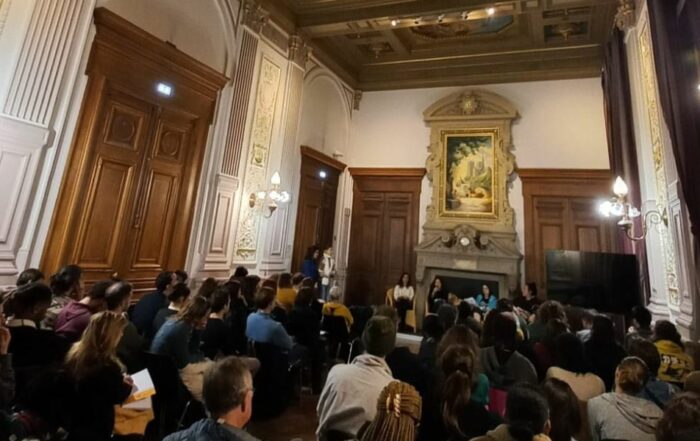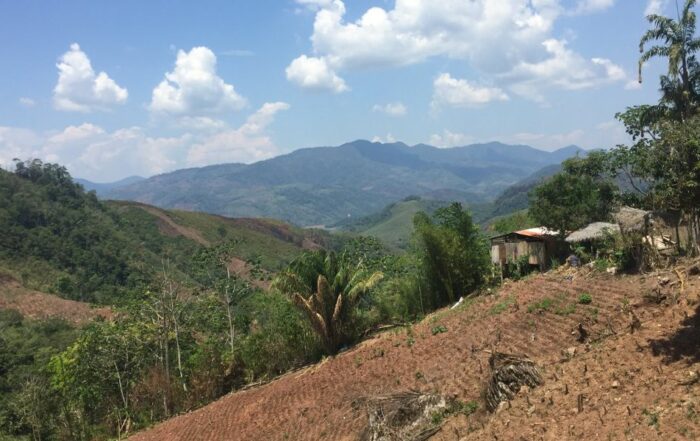The 2015 Paris Climate Conference – COP 21
From 30 November to 11 December 2015, France will be hosting the 21st United Nations Conference of Parties at Le Bourget near Paris.
This conference on climate change will aim to wrap up with the signature of an international legally-binding agreement on the climate, applicable as from 2020.
The goal is reach an agreement that binds the signatories to limit global warming to a 2°C increase in the planet’s average temperature compared to its pre-industrial revolution level.
It is vital that the agreement includes an ambitious objective to tackle deforestation, which accounts for around 15% of all greenhouse gases related to human activity. An average thirteen million hectares of forest disappear every year (equivalent to the surface area of England), also contributing to biodiversity loss, a deterioration of the services rendered by forest ecosystems (such as the water cycle and the absorption of atmospheric carbon) and a deterioration in the living conditions of forest communities.
Industrialised agriculture (such as palm oil and soy plantations or cattle ranching in Latin America) and the wood and paper pulp sectors are the main reasons behind this destruction of the forests. A significant portion of tropical production is exported to industrialised countries, and first and foremost the European Union. This is our “forest footprint”, in other words the contribution that our consumption makes to tropical deforestation. We need to take urgent action with regard to our consumption, and demand that companies and public authorities stop importing agricultural commodities that cause deforestation.
The fifth assessment report from the IPCC (Intergovernmental Panel on Climate Change) published in October 2014 signals the necessity to act now (https://www.ipcc.ch/pdf/assessment-report/ar5/syr/SYR_AR5_FINAL_full.pdf)
Practical action taken by Envol Vert
Envol Vert has been committed to practical action to protect the forests and biodiversity since 2011.
In Nicaragua, Peru and Colombia, Envol Vert has rolled out projects to support local populations in the fight against deforestation and biodiversity loss. One of our main areas of focus is limiting changes in land use (cutting down forest to replace it with cropping or cattle ranching) while addressing nutritional and economic issues. We have helped introduce agroforestry and sylvopastoral methods.In Peru, we have mixed trees and coffee bushes, in Nicaragua we are developing protein banks and special routes for animals through the forest, and we are testing the use of inga (or sweet peas) as an alternative to slash-and-burn, and in Colombia we use the Noya Maya, a tree with numerous properties.
In France and Europe, we are working to raise public and corporate awareness of the “forest footprint” (the impact of our consumption on deforestation); we have introduced a questionnaire and are working on a methodology for companies.
“Global warming is not an illusion: in northern Colombia, we are already working on solutions to live with it and adapt to it. Deforestation means there is less rain and we are working hard to replant trees to make up for the damage, but without water things are very challenging,” explains Daisy Tarrier, President of Envol Vert.
The 2015 Paris Climate Conference – COP 21
From 30 November to 11 December 2015, France will be hosting the 21st United Nations Conference of Parties at Le Bourget near Paris.
This conference on climate change will aim to wrap up with the signature of an international legally-binding agreement on the climate, applicable as from 2020.
The goal is reach an agreement that binds the signatories to limit global warming to a 2°C increase in the planet’s average temperature compared to its pre-industrial revolution level.
It is vital that the agreement includes an ambitious objective to tackle deforestation, which accounts for around 15% of all greenhouse gases related to human activity. An average thirteen million hectares of forest disappear every year (equivalent to the surface area of England), also contributing to biodiversity loss, a deterioration of the services rendered by forest ecosystems (such as the water cycle and the absorption of atmospheric carbon) and a deterioration in the living conditions of forest communities.
Industrialised agriculture (such as palm oil and soy plantations or cattle ranching in Latin America) and the wood and paper pulp sectors are the main reasons behind this destruction of the forests. A significant portion of tropical production is exported to industrialised countries, and first and foremost the European Union. This is our “forest footprint”, in other words the contribution that our consumption makes to tropical deforestation. We need to take urgent action with regard to our consumption, and demand that companies and public authorities stop importing agricultural commodities that cause deforestation.
The fifth assessment report from the IPCC (Intergovernmental Panel on Climate Change) published in October 2014 signals the necessity to act now (https://www.ipcc.ch/pdf/assessment-report/ar5/syr/SYR_AR5_FINAL_full.pdf)
Practical action taken by Envol Vert
Envol Vert has been committed to practical action to protect the forests and biodiversity since 2011.
In Nicaragua, Peru and Colombia, Envol Vert has rolled out projects to support local populations in the fight against deforestation and biodiversity loss. One of our main areas of focus is limiting changes in land use (cutting down forest to replace it with cropping or cattle ranching) while addressing nutritional and economic issues. We have helped introduce agroforestry and sylvopastoral methods.In Peru, we have mixed trees and coffee bushes, in Nicaragua we are developing protein banks and special routes for animals through the forest, and we are testing the use of inga (or sweet peas) as an alternative to slash-and-burn, and in Colombia we use the Noya Maya, a tree with numerous properties.
In France and Europe, we are working to raise public and corporate awareness of the “forest footprint” (the impact of our consumption on deforestation); we have introduced a questionnaire and are working on a methodology for companies.
“Global warming is not an illusion: in northern Colombia, we are already working on solutions to live with it and adapt to it. Deforestation means there is less rain and we are working hard to replant trees to make up for the damage, but without water things are very challenging,” explains Daisy Tarrier, President of Envol Vert.








